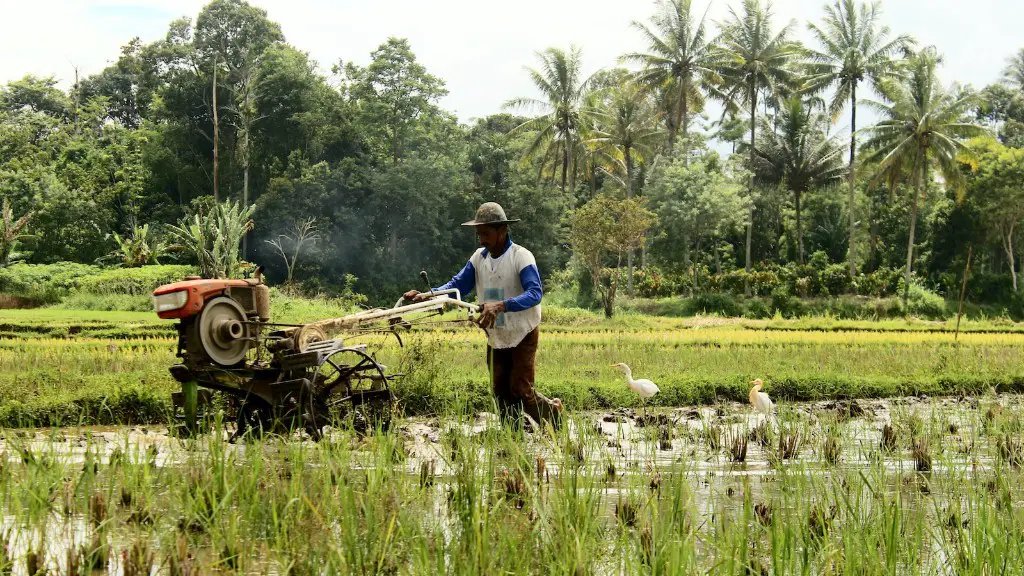Agriculture profoundly affects nitrogen cycling, which is integral in establishing a healthy environment. Nitrogen is an essential and abundant element in the natural cycle. Farmers rely on nitrogen-containing fertilizers to promote crop growth and increase harvest yields. While beneficial to agriculture, the abundance of nitrogen often has detrimental effects on other parts of the environment. This article will explore how agriculture affects nitrogen cycling.
Groundwater Pollution
Excess fertilizer use often results in nitrogen runoff into groundwater, where it can travel to surface waters. This can cause excessive algal blooms which can decrease water quality and negatively impact the habitats of aquatic organisms. Furthermore, nitrogen fertilizers can leach into soils and acidify them, which can reduce plant productivity and damage the environment by harming native species. In addition, when nitrogen-enriched water flows into wetlands, it can cause oxygen depletion and lead to eutrophication.
Air Pollution
Fertilization can also increase the rate of nitrous oxide production, a potent greenhouse gas. This is due to the activity of nitrifying bacteria and fungi, which use nitrogen-containing compounds as an energy source. Nitrous oxide has a long atmospheric lifespan, allowing it to persist and exert its influence on climate. The emission of nitrous oxide goes hand in hand with land-clearing practices, such as deforestation, that is a common precursor to agriculture.
Erosion
Erosion is caused by a complexity of factors, and fertilizer usage is no exception. Fertilizers lead to an “export of inert fertilizer and dissolved organic matter away from the associated land parcel”. This export reduces the fertility of the land and thus reduces future yields. Furthermore, the runoff of nitrates carries significant risks, including fish kills and algal blooms. Eutrophication and water pollution may also occur.
Climate Change
Agriculture’s contribution to climate change is largely due to the emission of nitrous oxide. As mentioned previously, this powerful greenhouse gas is produced through nitrification and can have a significant effect on the atmosphere. Industrial agriculture has increased its share of worldwide nitrous oxide emissions and is projected to continue doing so in the near future. Nitrous oxide contributes to global warming and climate change, posing a looming threat if left unchecked.
Soil Quality
Heavy fertilization can adversely affect soil quality by depleting organic matter, reducing nutrient retention capacity, and altering microbial communities. Nitrogen is the most commonly applied fertilizer, and when used too heavily can lead to acidic soil and reduced plant growth. The addition of organic matter, such as compost, is a viable solution to reduce nitrogen inputs while maintaining soil fertility.
Wildlife Decline
Fertilizer-enriched runoff causes an increase in water pollutants such as nitrates, phosphates, and heavy metals, which can have toxic effects on aquatic life. Additionally, it can cause habitat fragmentation, leading to decreased biodiversity. Excess nitrogen can also affect terrestrial wildlife, especially those species that rely on nitrogen-poor habitats, such as coral reefs and old-growth forests.
Water Scarcity
The increased use of irrigation caused by fertilization can lead to water scarcity. With more fertilizers and other agrichemicals polluting runoff water, it makes it more difficult for communities to access clean water for drinking and other purposes. Droughts and over-irrigation can also happen due to over-fertilization, leading to further water scarcity.
Effects on Food Supply
Heavy fertilizer use has been associated with the spread of antibiotic-resistant bacteria, a phenomenon known as the rise of ‘superbugs’. These bacteria can make their way into the food supply, reducing its safety and quality, and can also spread to humans, leading to potentially fatal infections. In addition, the nutrient composition of food is affected by the agricultural practices used to grow it, such as the overuse of nitrogen fertilizer, leading to lower quality and poorer nutrition.
Health Impacts
Heavy fertilizer use has been linked to various human health problems, such as increased cancer risk. Nitrates from fertilizer runoff have been implicated in higher incidences of several types of cancers, including stomach cancer and leukemia. In addition, excess nitrogen runoff can alter hormone function and impair the immune system, leading to a variety of health issues such as asthma, allergies, and other respiratory illnesses.
Ecosystem Services
The effects of agricultural practices on nitrogen cycling extend far beyond the production of food. Nitrogen plays an important role in supporting healthy ecosystems. It is an essential nutrient for both plant and animal life and helps regulate the functioning of many aquatic and terrestrial systems. Changes in nitrogen levels through heavy fertilizer use can disrupt these systems, reducing biodiversity and leading to decreased ecosystem services.
Potential Solutions
Agricultural practices and fertilizers can have wide-reaching effects on nitrogen cycling, many of which are detrimental. However, there are also potential solutions that farmers and policymakers can employ to reduce the impacts of fertilizer use. To reduce nitrogen runoff, farmers can implement nutrient management plans, which involve practices such as crop rotation, controlled irrigation, and the use of cover crops. In addition, policymakers can create and enforce laws that limit the use of nitrate-laden fertilizers.
Don’t Waste, Recycle
Organic waste, such as food scraps and animal manure, can be an important source of nitrogen for farming operations. This type of “waste” can be recycled within agricultural operations to produce usable nitrogen, essentially closing the loop on the nitrogen cycle. The use of recycled organic waste in agricultural production can reduce the need for nitrogen fertilizers, thus reducing their associated impacts and promoting a healthy environment.
New Technologies
Advances in technology are providing new tools for farmers to track and manage fertilizer use. For example, precision agriculture technologies such as variable rate fertilizer application can help farmers reduce their fertilizer inputs by targeting specific parts of their farms with higher inputs. In addition, new remote sensing technologies allow farmers to accurately assess their nutrient inputs and apply only those amounts that are needed.
Alternatives to Fertilizers
In some cases, alternatives to synthetic fertilizer can provide an effective and sustainable solution to nitrogen cycling. These include compost, manure, and other organic materials, which can add beneficial nutrients to the soil without inducing runoff or other negative environmental effects. In addition, cover crops can be used to reduce nutrient losses and increase soil fertility, while also providing a host of other ecosystem benefits.



